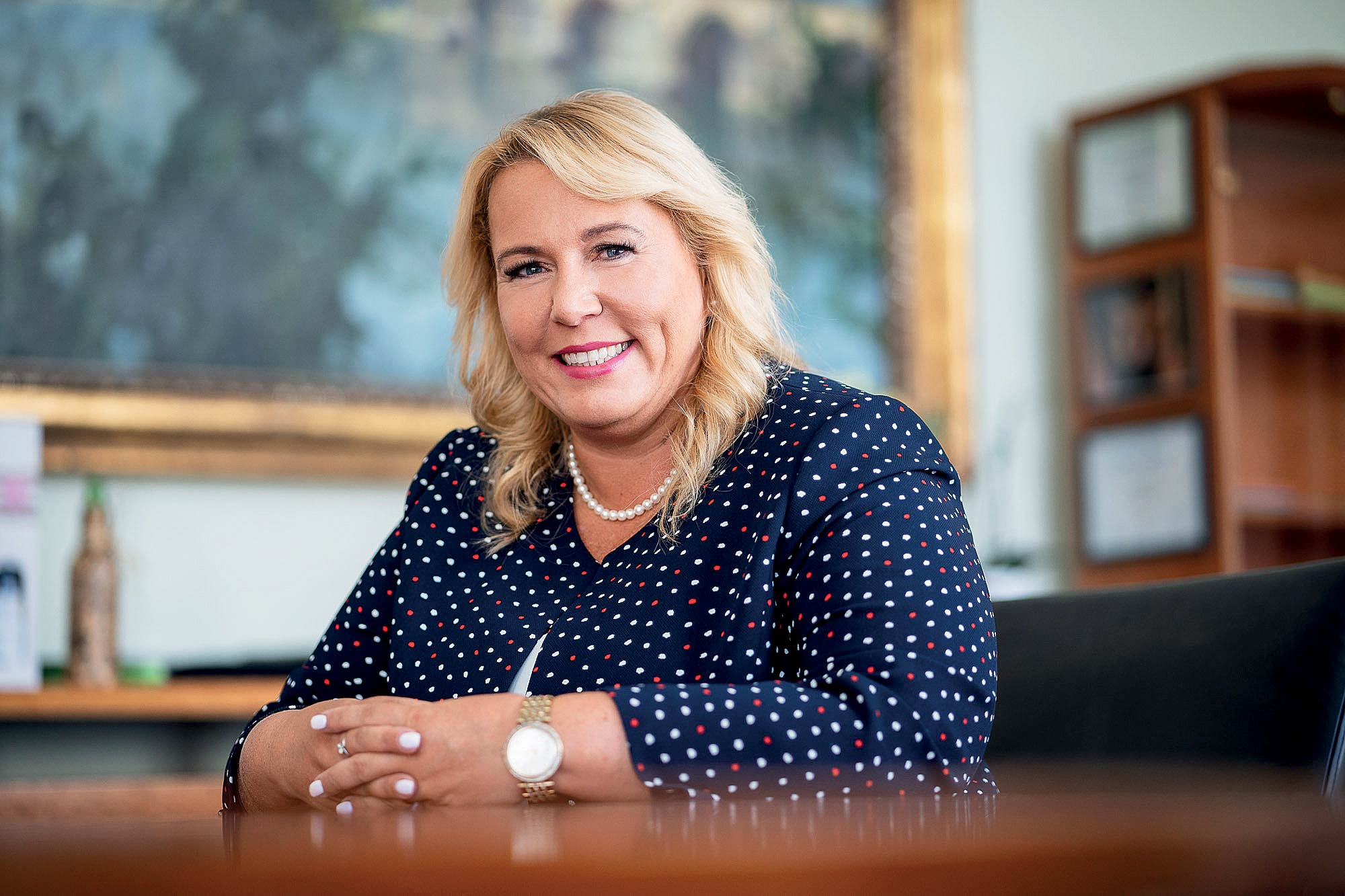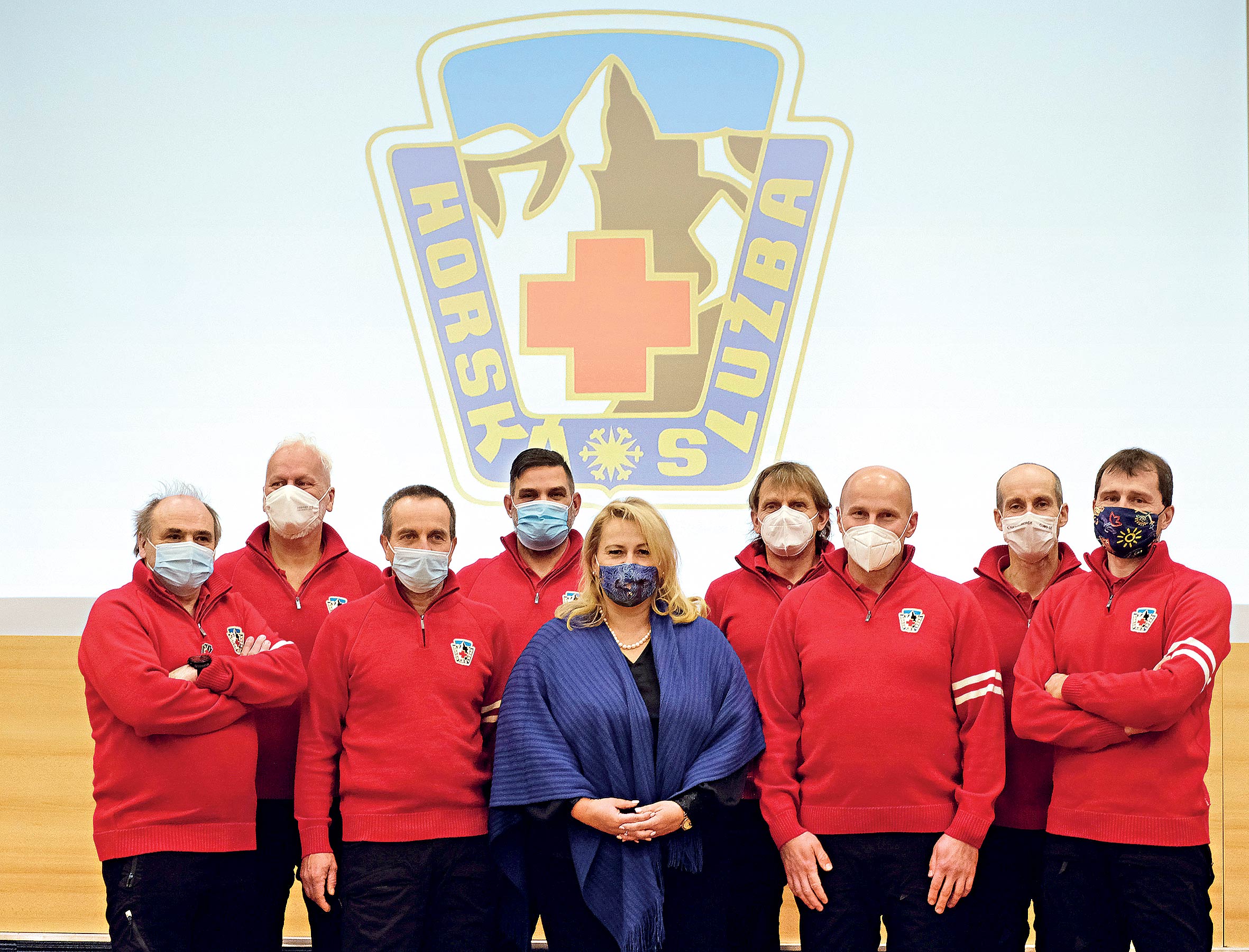“Our office is a unique department, with a wide array of interests and plenty of partners throughout different areas,” says Minister of Regional Development Klára Dostálová, who recently managed to pass a new construction bill in the Chamber of Deputies.
You have been with the Ministry since 2014, and this is your fourth year as the Minister. What were the key issues you have worked on? What are you proud of during your time there?
The use of EU funding is a big topic, it represents billions of Crowns in investments. Last year, we managed to once again fulfill the n+3 rule, which means that we were able to make use of the full amount of EU funding that the Czech Republic was eligible for. We are currently on track to use all the financial resources that have to be invested this year as well. The majority of programs have fulfilled the n+3 rule this year, and the remaining ones are on the verge of doing so.
Can you be more specific?
The Integrated Regional Operational Program has distributed a total of 129,3 billion Crowns to 11 302 projects. This money will serve to reconstruct or modernise over 1328 kilometers of roads, 390 kindergartens, and to provide 1138 ecologically friendly vehicles for public transportation. The Integrated Regional Operational Program is also working on the REACT-EU project, through which we provide help to Czech hospitals. The planned budget of this initiative is 7,9 billion, with a potential addition of another 5,5 billion. Effective funding payouts to applicants are not everything, however. That is why we are already in rigorous negotiations with the European Commission to secure the best possible position for Czechia. We have to negotiate the best conditions for the upcoming program term, which is 2021–2027. The National Investment Plan was a great help in this regard, as it enabled us to define the specific needs of our regions in conjunction with towns, cities, counties, and other bodies. The European Commission also appreciated the plan, as this was historically the first time when we, as the Czech Republic, had no major objections to the Country report they sent us. On top of that, we managed to include the seniors and local roadways among EU-funded areas. Those are the exact things that towns and municipalities have been calling for.
The RE:START program is another successful one. What exactly is it about?
RE:START helps structurally affected regions, those being the Moravian-Silesian, Ústí nad Labem, and Karlovy Vary territories. We operate in many different regions, of course. We drew up a proposal of the Strategy of Regional Development CR 2021+, which will set the course of regional politics until 2030. Mainly, though, it will function as a basis for regional distribution of EU funding. The finances will go where they will have the biggest impact. And as the Ministry, we did a great deal to help tourism by drafting an amendment that protects clients of travel agencies. We also launched certification of destination management and resolved the financing issues plaguing the Czech Mountain Rescue.
Affordable housing is another hot topic...
We were active in this regard as well, preparing favourable loans for the younger generation, now called “Your own living”. We launched the Výstavba (Development) program via the National Fund for Housing Development, which is a municipal project combining funding and loans in order to make housing affordable. Our biggest current success is the approval of a brand new construction law in the Chamber of Deputies. It will positively influence housing affordability and also enable other key national investments. I would like to take this opportunity to thank all the M.P.’s, the Committee on Economic Affairs, and everyone else who worked on this bill. And the citizens will profit the most.
How specifically?
Everyone who will want to plan construction work will have to follow the same rules – one application, one approval stamp, one final decision, and above all the obligation to meet official deadlines. We all need to live normal lives, not spend them in traffic jams due to damaged roads. And building your family home should be a joy, not a nightmare. Especially big cities are plagued by the affordable housing crisis. The price of a new apartment in Prague has risen above the one hundred thousand Crowns per square meter level, and other big cities are not far off – the middle class cannot even afford an apartment in most of them. Without a doubt, the cause of these high prices is limited supply due to the low approval rates of new construction. All of the government's attempts at supporting people will be in vain if the approval process of a new apartment building ends up taking years (the average in Prague is more than five years). Towns should start construction of welfare and affordable housing, but without a more expedited approval process, all the State programs will be useless. And the approval process for highways, roads, and town circumferential motorways can take over thirteen years. We need to work on the digitalization of our country. We need internet in every village, and even this needs to be approved by the construction offices in as short a time as possible.
Will the refurbishment or construction of a house be easier for the people then?
Every person will feel the effect of the new construction law, whether they plan to refurbish, build, or just want to put up a new greenhouse in their backyard. Such small-scale procedures are covered by the so-called expedited procedure. If there are no issues, the construction office will issue a permit as the very first action in the proceedings with a thirty-day deadline. Strict adherence to deadlines and substitutability of officials is the quintessential element. We no longer want people to run into a “Closed due to illness” sign at the construction office. National construction administration officials will be independent from local politicians. The fact that you can now only have one ongoing approval process instead of two is key. The new law will also do away with the never-ending back and forth, where appeals would keep getting rejected and returning back to the lower instance office. Dozens of different stamps – the symbol of the current bureaucratic culture – will disappear.
What was the issue then? Why did opposition M.P.'s as well as some cities like Brno, Ostrava, Pilsen, or Liberec, and even the Mayor of Prague disagree with the bill?
I would like to know that too. The Ministry of Regional Development supported three out of the four demands raised by big cities in the Four City Articles document. The only one we could not stand for was the demand to have town planning under their own jurisdiction. It was also opposed by the Union of Towns and Municipalities and voted against by the honorary chairman of the Union and Mayor of Prague, Zdeněk Hřib. In no way does the new law take away the opportunity of municipalities to decide their own development. They currently have no formal authority when it comes to construction approval anyway, and town planning will stay within delegated municipal jurisdiction, as it was up until now. In fact, the law strengthens the authority of municipalities and their chosen representatives in the town planning process.
What about the elections?
I was asked to enter the elections once more. I will be honored to do so, and I appreciate the trust I have been given. The Hradec Králové region is close to my heart, it is where I built my career and I know it well.
You have been in politics for quite some time. Does it keep you up at night sometimes?
I have always been a person who – when it is the least bit possible – tries to find a compromise. I approach any and all tasks with conscientiousness, which lets me sleep well at night. Of course, things do not always go according to plan. That is not just a matter of politics, but of life.
How did you manage to raise two children all the while?
I believe I am not the only one when I say that I had to involve my entire family in the logistics of it, including my husband and all the grandparents. My husband, primarily, has been very supportive, I could never have done it without him. Before I became a minister, I tried to spend as many weekends as I could with my family, but now there is a lot of work to be done even then. There are a lot of municipal projects where a minister is always a welcome sight, so I spend a lot of time engaged in just such activities. I try to talk to mayors because we have a chance to discuss a lot of issues during events like that. And, naturally, this comes at the cost of family time.
It will be a year in July since you have become a grandmother to your grandson Kryštof. How do you feel about this new role?
People kept telling me I was very young to be a grandmother when he was born. It is partly due to the fact that I also had children at a young age. On the other hand, I always have a good time with my grandson, and I hope the grandchildren will keep coming. I spend time with him whenever I can. I am still full of energy so we will definitely do a lot of sightseeing and hiking together.
Are you the type of grandma who spoils the children?
I have to admit that I am, my kids have to keep me a little contained. I am sure of one thing right now – I am not going to be a grandmother that forbids things. Planning is underway for my summer vacation, and my grandson is definitely a part of it. I think we are going to have a good time once again.

CV BOX
Klára Dostálová (born March 13, 1971, in Prague) is the Minister of Regional Development and M.P. for the ANO 2011 movement.
She graduated from the Prague University of Economics, and then went on to work at Česká Spořitelna as a loan specialist, and subsequently at Stavokomplex as the chairman of the board.
In 2001 and 2002 she was the manager of the administrative department of the Hradec Králové Regional Office. She was also a part of the non-profit corporation Revitalizace KUKS, first as chairman of the board and then as director.
She has been on the Czech Mountain Rescue managing board since 2014 and has been its chair since 2015. She was the Deputy Minister of Regional Development from 2014 to 2017 and has been an M.P. Since 2017. She was also the Hradec Králové region representative in 2016 and 2017 and has regained this position in 2020.
She is married with two children and a grandson. She lives in Hořice in the Jičín region.

Klára Dostálová has been the chair of the Mountain Rescue managing board for six years.
The representative
Klára Dostálová is a representative of the Králové Hradec region. What are the most burning issues? According to Klára, it is mostly transport infrastructure. “Namely the D11 highway between Hradec Králové, Jaroměř, and Trutnov, the D35 between Jičín and Hradec Králové, but also circumferential highways. The upside is that we will be opening roughly thirty kilometers of new highways this year, which should help alleviate the situation. It is essential that investments in different areas are not halted in the region due to the decrease of tax income during the pandemic. Especially in healthcare. Emergency rooms need a lot of investment, each district hospital should have one.”